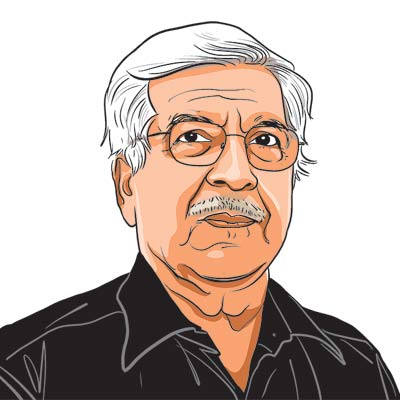Opinion Manufacturing world class knowledge
Minister Kapil Sibal hit the nail on the head by categorically laying down that the real challenge for India is to produce world class knowledge at home.
Minister Kapil Sibal hit the nail on the head by categorically laying down that the real challenge for India is to produce world class knowledge at home. Great universities are not only manufacturers of engineers,managers and computer geeks. These emerge from a culture of innovation embedded in structures of autonomy and responsibility,not as buzz words but operating principles. The university I got my doctorate from discovered the first analog computer in world history at the Moore School of Electrical Engineering at the University of Pennsylvania. It wouldn’t have been possible without its Quaker roots.
Autonomy goes with responsibility and the Minister will have to ensure that responsibility is not just that of the students,teachers and karmacharis but also of the Vice-Chancellor,the Registrar and the Departments of Higher Education at the Centre and the States.
Universities have to be global in thinking in this wired age,but our V-Cs and teachers need a babu’s dhobi mark to go to attend a seminar abroad. The best way to build up global links is at the academic worker level,and principles of autonomy and responsibility have to be operationalised at that level. These are fairly complicated questions of detail. Supervisory mechanisms built up by technocrats,space scientists and lady principals of Convent schools are not always relevant,however articulate they may be because you have to ensure accountability. This is difficult as compared to a factory,since you can’t sit on a scholar preparing a lecture,reading or writing. The views of those who have done good teaching and research and have published globally,have been conspicuously missing in the present round of discussion and debate. It would be good to get real. It was disturbing when inspectors were sent to each one of India’s deemed universities. It is correct to say that some of them are the worst in India. But some are also the best,and we need to learn from them and replicate their experience.
Going back to my global experience,in my last professional exam at the University of Pennsylvania,I was hauled over the coals. A great development theorist told me,”Yoginder,you are a good product of this school and have proved with algebra,logic and facts answering questions that your friend Myrdal is wrong on trade theory,but you are defending him because he is partial to poor countries and you come from one.” Young and very intransigent,I shot back,”You are saying this because you are in authority and I am not.” But the chairman of the exam intervened,”Gentlemen,remember he is one of our best.”
I passed without conditions,rare for a student taking the exam in eighteen months flat,and my teachers always supported me since,anywhere in the world. I can contrast this with a student in the best arts school in India not given his degree,and his teacher a distinguished arts historian still suspended. I didn’t myself like the painting that was in question,but if universities insist on conformity,we would never have progress. In another university,a defeated politician was made the lifetime Chancellor by his party. We need to build firewalls for autonomy.
JNU was rated as one of the top universities of the world while I was its V-C,the only Indian general university to make it. This meant for me a place in the elite Global Rectors group,but its origin went back in my mind when I came back from my jog on the campus and read that a JNU hosteller had rebuked a news correspondent for saying that one of its experiments would fail because of the experience of another Delhi University. This young person said,”the other experience is not relevant,for we are one of the best”. I knew then they would make it,maybe after I finished with them. But they did it when I was there. That is the heat we must generate,for as the Knowledge Commission says,we need a thousand global universities.





